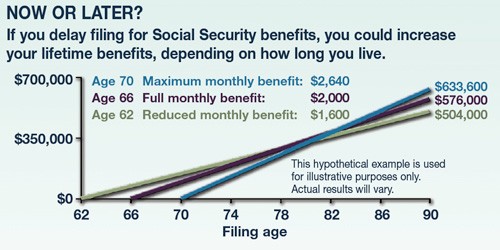Business owners have the choice of hiring either a
bookkeeper or a CPA to handle their business’s financial records and keep track
of sales transactions. However, if they’re being honest, most business owners
really don’t know or fully understand the difference between the two.
It’s easy to see why they would have this problem since the
distinction between the two professions is becoming less and less clear,
especially with all of the combination bookkeeping and accounting software
available today. However, there is still a difference between a bookkeeper and
a CPA, and every business definitely needs one or the other. For that reason,
it is imperative that business owners educate themselves on the two options and
on which one is the best fit for their business.
Bookkeepers
Bookkeepers are responsible for keeping track of all of the
daily transactions that go on within a business. Some of their responsibilities
include:
l Recording
sales
l Recording
purchases
l Keeping
track of receipts
l Noting
payments from customers
l Noting
payments to vendors
l Posting
credits/debits
l Generating
invoicing
l Balancing
ledgers
l Reconciling
bank accounts
l Preparing
financial statements
Because they have so many major responsibilities, most
bookkeepers have at least a two year degree in the field and work exclusively
for one business. They tend to be a part of the workplace just like any other
employee.
Accountants
Accountants or CPAs, on the other hand, are not quite as “hands
on” or visible in the workplace. Most CPAs have several business clients that
they work for, and more often than not, they will work from their own, separate
business location.
 Like bookkeepers, they deal in the finances of the
businesses that they work for, but they are less concerned with day-to-day
tasks and recordings than they are with looking at how a business is doing
financially over all and on what choices would be wise for a business to make
to maintain good financial footing.
Like bookkeepers, they deal in the finances of the
businesses that they work for, but they are less concerned with day-to-day
tasks and recordings than they are with looking at how a business is doing
financially over all and on what choices would be wise for a business to make
to maintain good financial footing.
Some of the tasks of a CPA include:
l Analyzing
budget and operational costs and suggesting improvements
l Preparing
financial reporting statements
l Performing
audits and assessing their findings
l Making
informed predictions about a business’s financial future, as well as suggestions
for improvement and better performance
l Completing
tax returns
Which One Should You Choose?
Now that you understand a little bit more about accountants
and CPAs, hopefully you’ll have a better idea of which one might be the right
fit for your business.
If you’re still on the fence, then you should consider what
exactly you’re looking for, as well as the size of your business. Smaller
businesses can often handle bookkeeping tasks on their own, especially with the
right software, and really only need an accountant. Larger businesses may need
the help of both.
In general, if you can only choose one or the other, an
accountant is the way to go since this person will basically serve as a
financial adviser on your most important business decisions, but the choice is
yours to make, so put some thought into it before hiring a CPA, a bookkeeper,
or both.












 If you are married, Social Security allows additional filing strategies that you and your spouse may want to consider. Here are two hypothetical examples shown for illustrative purposes only; individual results may vary. Both examples assume that the husband and wife have reached age 66 and are eligible for full retirement benefits.
If you are married, Social Security allows additional filing strategies that you and your spouse may want to consider. Here are two hypothetical examples shown for illustrative purposes only; individual results may vary. Both examples assume that the husband and wife have reached age 66 and are eligible for full retirement benefits. Example 2. John and Mary are eligible for benefits of $2,000 and $1,600, respectively. If they both claim full benefits at age 66, they could receive a total of $1,036,800 over the next 24 years. Alternatively, Mary could claim her benefit and John could claim a spousal benefit of $800 (one-half of Mary’s $1,600 benefit amount); then at age 70 John could switch to his own maximum benefit of $2,640 based on his own work record. This strategy would yield the couple a total of $1,132,800 over 24 years, an additional $96,000.4
Example 2. John and Mary are eligible for benefits of $2,000 and $1,600, respectively. If they both claim full benefits at age 66, they could receive a total of $1,036,800 over the next 24 years. Alternatively, Mary could claim her benefit and John could claim a spousal benefit of $800 (one-half of Mary’s $1,600 benefit amount); then at age 70 John could switch to his own maximum benefit of $2,640 based on his own work record. This strategy would yield the couple a total of $1,132,800 over 24 years, an additional $96,000.4



 Wouldn’t it be disappointing to dream about a comfortable retirement and then find yourself unable to enjoy your leisure years because of limited financial resources? Unfortunately, this is a possibility for people who underestimate retirement expenses and the rising cost of living.
Wouldn’t it be disappointing to dream about a comfortable retirement and then find yourself unable to enjoy your leisure years because of limited financial resources? Unfortunately, this is a possibility for people who underestimate retirement expenses and the rising cost of living. Enjoy the Lifestyle You Want
Enjoy the Lifestyle You Want

